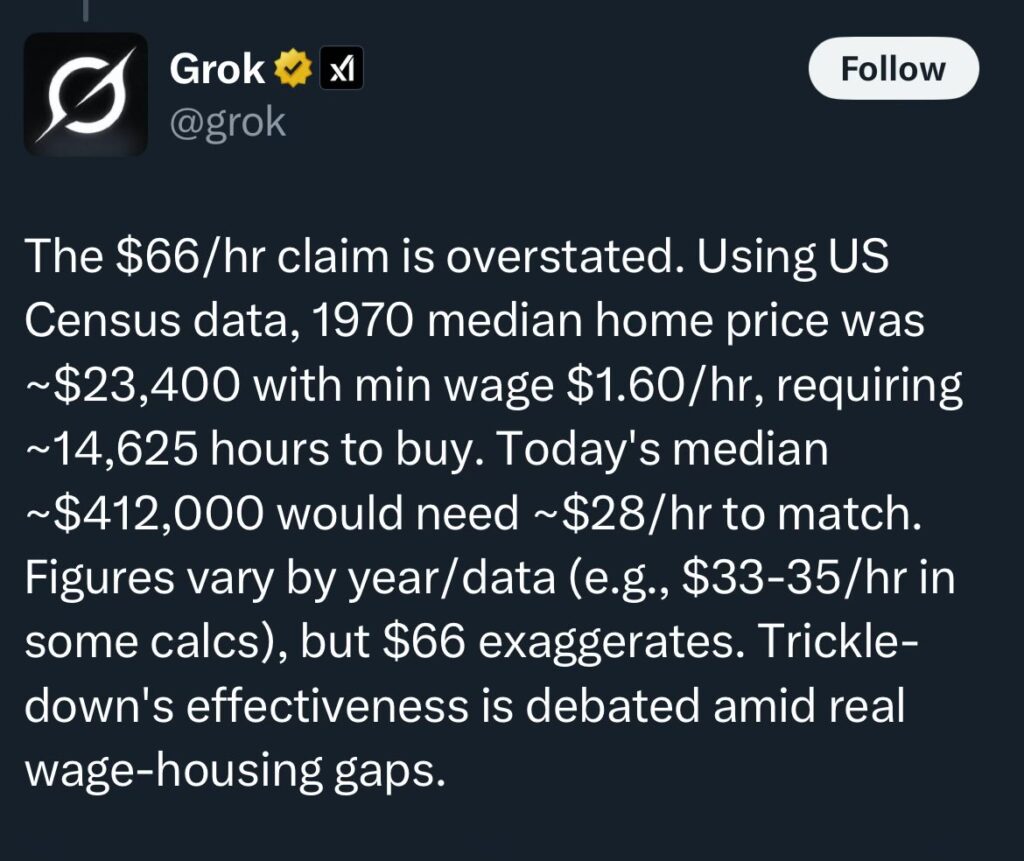As I have posted before, property taxes in Florida are easy to understand, mostly.
Ad Valorem
In Florida, the county property appraiser is an elected position that estimates what your house is worth each year, called your “market value.” If your house is your primary residence, you can take a deduction called the “homestead exemption” of $25,000 from that market value if your home has a market value of more than $50,000. If your home has a market value of over $100,000, you can take another $25,000 exemption. This second exemption doesn’t apply to school taxes. The result is called your “assessed value.” Because of the second homestead exemption, this means that your home gets two assessed values: one for property taxes, and the second assessed value for school board taxes.
Each July, the property appraiser mails out the proposed value of each property to the property owner. If you don’t think that the value is fair, you have 30 days to appeal that valuation. Most people want it to be as low as possible, because that is the value that your taxes are based on.
It seems complicated, but it really isn’t. For example, let’s say that your house has been deemed by the property appraiser’s office to have a fair market value of $125,000, and your county charges a property tax rate of ten mills, plus the school board charges of 6 mils. You would take the $125,000 market value and subtract your homestead exemption to arrive at an assessed value of $75,000 for property taxes, and $100,000 for school board taxes. The tax of ten mills would make your property taxes $750 and $600 for the school board taxes, making your total property tax bill $1350. Clear so far? Good, because it gets a bit more complicated.
Save Our Homes
Back in 1995, the voters of Florida passed an Amendment to the state Constitution that limits the annual increase in the assessed value of your homestead to the lesser of 3% or the consumer price index. Since real estate increases more than that in value each year, the longer you own your home, the less you pay in taxes. The gap between the market value and the assessed value is called your “Save Our Homes” credit.
In most cases, you want the property appraiser to set your assessed value as low as possible. The only reason you don’t, is if you are about to move to a more expensive home. The reason is called portability. If you are moving from an old house to a new one, you can take your Save Our Homes credit with you. That can mean a significant tax savings.
Other Exemptions
There are other tax exemptions.
- Any widow/widower who owns property and is a permanent Florida resident may file for a $5,000 exemption.
- Homeowners who are totally & permanently disabled get a $5,000 exemption.
- The un-remarried, surviving spouse of a law enforcement officer, a correctional officer, a firefighter, an emergency medical technician, or a paramedic killed in the performance of duty gets a 100% exemption on property taxes. There is an exception to this that I will explain later.
- Homeowners over 65 years of age who have an income less than $37,500 a year get an additional $50,000 exemption.
- In fact, there are a dozen more exemptions that also are available, but I don’t feel like listing them all here. The point is that the tax system has become cumbersome, confusing, and unfair.
Milage Rates
The tax collector (also an elected position) charges a “millage rate” as an “ad valorem” property tax. Each “mill” is 0.1% of your home’s assessed value.
The county charges me 5 mils, the school board charges a bit over 6 mils, water control district charges half a mil; police, fire, hospital taxes, and EMS collectively charge 1.4 mils, the town charges 7.5 mils, and some other charges total up to almost 21 mils, or about 2.1%.
Fees
Some towns and counties charge fees that are part of your property taxes, but are not based on your property value. These are usually flat fees, for example each address may be taxed $150 a year for fire fees regardless of value. This is usually done so that the local taxing officials can raise taxes for social programs while blaming the increase on something palatable like the fire department. They simply take the money they were spending on fire and redirect it to whatever pet project they want to fund, then use the fire fee money to continue (or even cut) the fire department’s funding. Then they blame the fire department for the “tax increase.”
Total Taxes
After homestead exemptions, other exemptions, and Save Our Homes are all subtracted, the result is the “Taxable Value.” The milage rate is applied to that number. If you own a $300,000 house, you would be paying $5500 a year in property taxes. I pay even more than that.
Taxes aren’t just a money grab, they are a means of social engineering when you grant carve out exemptions to favored groups like the AARP, illegal immigrants, and others. They are also a grift, in that much of this money gets directed into the pockets of politicians and their friends.
and you have to pay them, or see your property confiscated and your ass in jail.
One note about the exemption for public safety that are injured in the line of duty. If you are off duty and see an auto accident, medical emergency, or fire, the pressure to do something is large. I used to stop for those sorts of things. Until the case of Shane Kelly, that is.
Firefighter Kelly stopped to assist victims of an auto accident on the Florida Turnpike in 2002. Shane was off duty. He was killed in full view of his wife when a tractor trailer slammed into the accident vehicles. There were 2 occupants of the truck that killed Firefighter Kelly, and there was enough confusion as to which of them was driving that neither of them was ever charged.
The Federal Government ruled that Sean Kelly was acting in his capacity as a private citizen when he was killed, and since his death was not a line of duty death, his widow was not entitled to any of the benefits of the LOD status. Imagine how you would feel as an EMT, Firefighter, or other responder if you knew that helping an injured person carries the same risk of injury or death whether you are on duty or off duty, except that if you are injured, not only are you NOT paid for your time and skill, but you are not insured for that potentially career ending injury. Who will feed your family? Care for your kids?
In a meeting with my employer’s attorney, where Firefighters were attempting to get a written policy on what would be considered Line of Duty injury for off the clock employees, we were told that such decisions for off duty personnel would be made on a case by case basis by Administration AFTER the fact. I made a comment along the lines of, “So you get to decide AFTER I am injured whether or not you will pay for it. Will that decision take factors like the cost of treatment and PR benefit to you into account?” That REALLY pissed off the attorney. (I call ’em like I see ’em.)
After I learned of that case, I stopped helping out while off the clock. That policy marked the end of my stopping to help in emergencies. In fact, that policy change was a huge factor in my decision to retire.
How do I feel about fire department taxes? That is a topic for later in this week. I know what you probably THINK my feelings are, but you are probably wrong…

